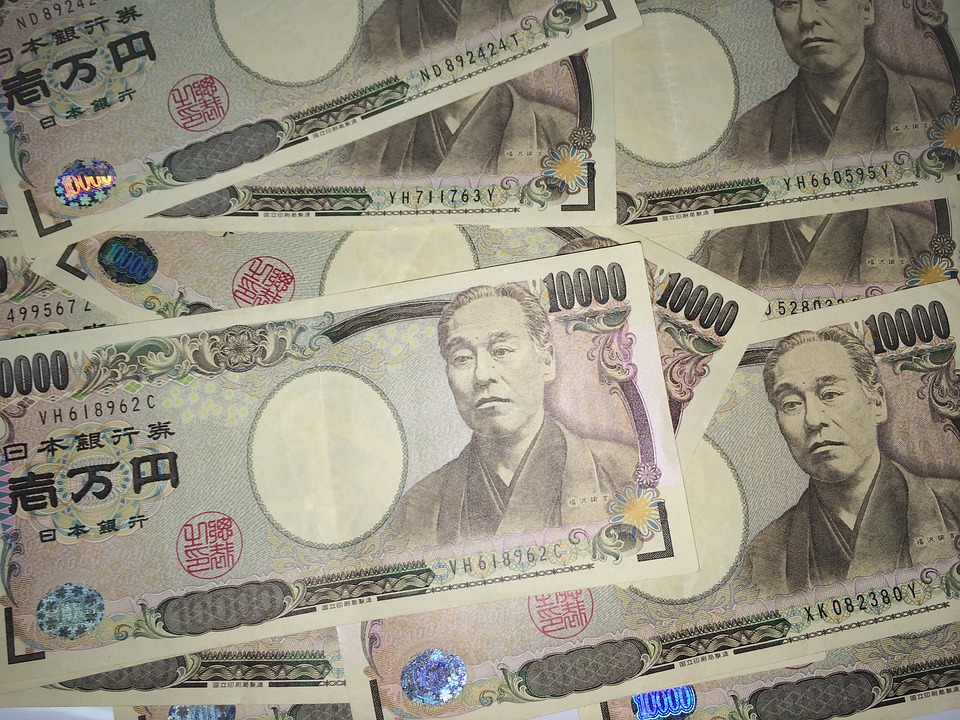Yen Slides Past 150 Per Dollar: Japan On High Alert For Further Declines Amid Economic Uncertainty

Image Source: Pixabay
- Japan's currency official cautioned about the yen weakening beyond 150 per dollar.
- Analysts believe the yen could drop to 160 per dollar due to strong US economic data.
- Prime Minister Shigeru Ishiba stated Japan isn't ready for more rate hikes, while the Fed may cut rates twice
Japan’s currency officials have issued a warning as the yen has dropped beyond the critical threshold of 150 per dollar, signaling the risk of additional declines despite potential intervention measures.
Following the remarks of Atsushi Mimura, the country’s top currency official, the yen managed a slight recovery, climbing 0.2% to 149.86 per dollar.
According to a Bloomberg report, analysts monitoring the currency suggest it could depreciate further, possibly reaching 160 per dollar, influenced by robust US economic data that has led traders to temper expectations for Federal Reserve rate cuts.
Uncertainties in both Japanese and US monetary policies are contributing to fluctuations in the yen’s value.
Prime Minister Shigeru Ishiba indicated earlier this month that Japan is not prepared for additional interest rate hikes, though he later aligned his views with those of the Bank of Japan (BOJ).
Conversely, overnight indexed swaps suggest that the Fed is likely to implement at least two quarter-point rate cuts in the coming three meetings through January.
“The market is still over-pricing a rate cut from the Fed, so as we see expectations recede, I think the yen will gradually weaken,” stated Tohru Sasaki, chief strategist at Fukuoka Financial Group Inc. He added that the yen could reach the 160 mark as we head into the new year.
A further decline in the yen towards 150 or 155 could prompt the BOJ to consider earlier rate hikes than anticipated, according to Kazuo Momma, a former BOJ executive director, speaking at a Bloomberg conference last week.
He noted that the BOJ’s decision to raise rates in July was largely driven by the yen’s weakness.
Until now, officials from the finance ministry have largely refrained from commenting on the yen’s movement since October 7, when strong US jobs data triggered a selloff.
Their statements typically indicate the level of concern regarding the currency’s stability and the likelihood of intervention.
“There is a possibility that the dollar-yen will rise more, so Mimura probably made the comment to curb the yen’s further depreciation,” observed Teppei Ino, Tokyo head of global markets research at MUFG Bank Ltd.
He cautioned that the BOJ might be running out of time to intervene effectively.
Investor sentiment is also shaped by uncertainties surrounding upcoming elections in both the US and Japan.
The potential return of former President Donald Trump or the risk of Japan’s ruling Liberal Democratic Party losing its majority in the lower house adds to market volatility.
“If we break 152, I see 156 if we do not see any intervention from the Ministry of Finance,” predicted Shoki Omori, chief desk strategist at Mizuho Securities Co.
He noted that while verbal interventions may increase, the likelihood of Japan actively supporting its currency before the national election on October 27 seems low.
Market participants will closely monitor statements from central bank officials in both countries, particularly a speech by BOJ Deputy Governor Shinichi Uchida, representing Governor Kazuo Ueda.
However, some analysts believe significant movement in the currency is unlikely in the short term due to the prevailing cautious environment.
“With the Trump risk in mind, it seems that the environment will continue to make it difficult to sell the dollar in the short term,” wrote Yujiro Goto, head of foreign-exchange strategy at Nomura Securities Co. in Tokyo.
He added that while he anticipates a readjustment of the dollar-yen exchange rate toward the end of the year, it is likely to remain elevated around the 150 mark in the near term.
More By This Author:
Shiba Inu Price Prediction: Can SHIB Reach A $100 Billion Market Cap?Here’s Why The Uranium ETF URA Has Gone Vertical
Vodafone Share Price Rally Has Stalled: Buy, Sell, Or Hold?
Disclosure: Invezz is a place where people can find reliable, unbiased information about finance, trading, and investing – but we do not offer financial advice and users should always ...
more


